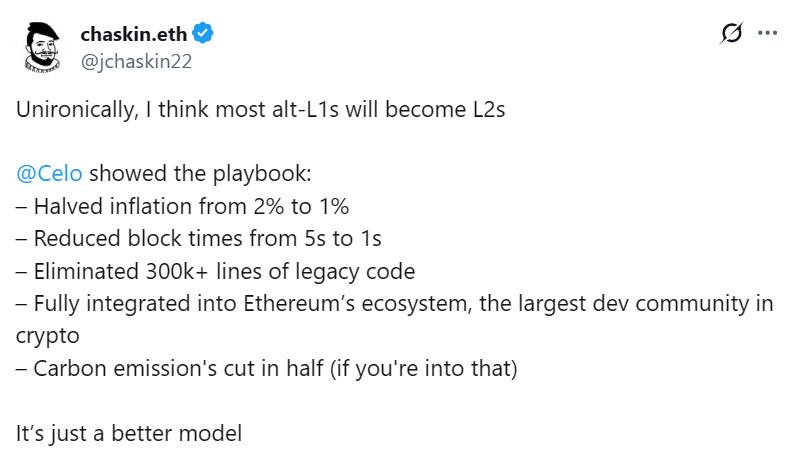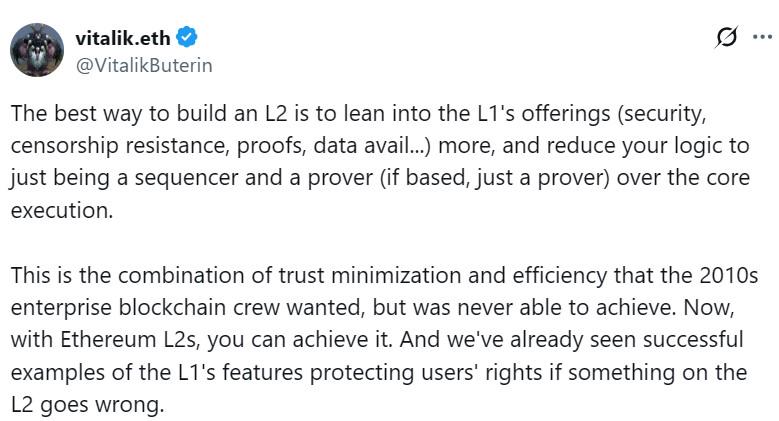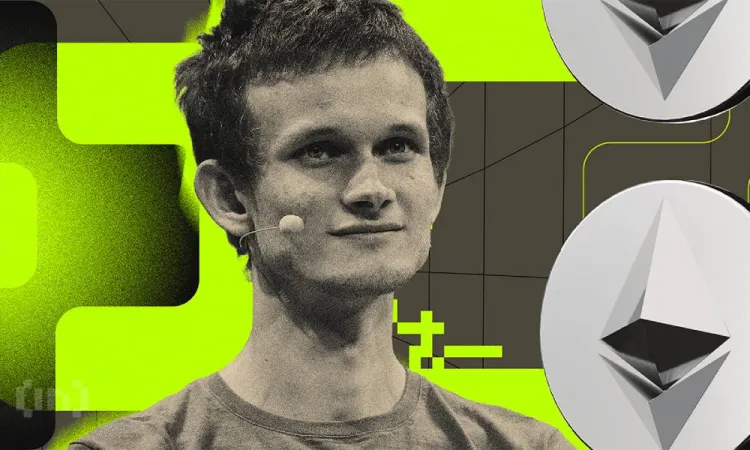Vitalik Buterin Advocates Minimalism for Future Layer-2 Blockchain Success
As layer-1 (L1) blockchains face increasing pressure to stay relevant, a growing number of Ethereum advocates are proposing a bold shift: transitioning L1s into layer-2 (L2) networks on Ethereum.
On Monday, Jason Chaskin, head of app relations and research at the Ethereum Foundation, sparked widespread discussion by stating that most L1 networks will eventually become Ethereum layer-2s, using Celo’s recent shift as a potential model.
Chaskin noted that Celo’s transformation reduced inflation, simplified its codebase, and boosted block speed, while aligning with Ethereum’s massive developer ecosystem—"the largest dev community in crypto,” as he put it.
Vitalik Buterin: Leaner L2s Are Better
By Wednesday, Vitalik Buterin, co-founder of Ethereum, joined the dialogue with his vision for layer-2 design. He expressed the idea of minimalism, saying that the most appropriate way of building L2s is to take advantage of the feature of Ethereum in all possible ways, which in most part would include its security, availability of data, and censorship resistance.

Buterin explained that L2 networks have a limited number of tasks that should be prioritized instead of reimaging a complicated system:
Sequencer - Identifies the allocation of transactions Sequencer - Identifies the allocation of transactions
Prover -Checks transactions and creates proofs
According to Buterin, this lean construction implements in full the concepts of trust minimization and efficiency sought out by enterprise blockchain projects during the 2010s, and too often never achieved.
“Now, with Ethereum L2s, you can achieve it,” Buterin stated. “And we’ve already seen successful examples of the L1's features protecting users’ rights if something on the L2 goes wrong.”
Strategic Shift: Build With Ethereum, Not Against It
The remarks from Chaskin and Buterin reflect a strategic shift in how emerging blockchain projects might approach sustainability. Instead of competing head-on with Ethereum, they suggest embracing its infrastructure to enhance scalability, reduce cost, and gain network effects.

Ethereum Foundation Pushes Forward With zkEVM Plans
Buterin’s comments arrive shortly after the Ethereum Foundation revealed a major upgrade initiative: zkEVM integration.
On July 11, developer Sophia Gold of the Ethereum Foundation (protocol support) posts a roadmap of migrating the standard block execution process with zero-knowledge proofs (ZK-proofs) in the next 12 months.
The move to a zkEVM (zero-knowledge Ethereum Virtual Machine) would allow verifying blocks with succinct proofs and eliminate the necessity to re-compute all transactions. The shift will greatly enhance the scalability without compromising all the main decentralization principles of Ethereum.
By including relevant keywords and linking to related articles, the rewritten content aims to provide comprehensive information while enhancing search engine optimization for CryptoTelegraphs.
Join Telegram Channel For Daily New update: https://t.me/cryptotelegraphs_updates






0 Comments